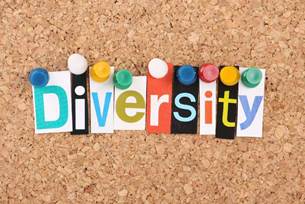Chart your own professional future. Because where you work can make all the difference in the world in your job satisfaction. Why not? Now is the right time. Unemployment is low and there is a labor shortage, so you have choices in jobs!
This means that you should act with purpose in choosing where you work. Figure out what is important to you and then, while interviewing, ask questions that help you learn about the company and if it is a place where your needs and values will be met. If diversity is a critical value for you, it should be as well for the organization at which you work. How can you determine how important diversity is to an organization just from an interview? You will want a sense of this before deciding whether or not to accept an offer of employment. You can acquire this information during an interview by asking questions like the following, observing, and listening.
Questions:
-
- How does the organization ensure diversity among its staff? How does it ensure future equal opportunities for everyone?
Find out what you can about the organization’s systems, policies, and practices. In answering these two questions they should first address recruiting and hiring policies and practices. For example, where do they advertise for positions? Do they work hard to identify recruiting sources that would be seen by diverse candidates? What about after they are hired? You can ask about systems for identifying internal candidates for promotion as well as for offering employees training and development opportunities.
-
- How does top management show support for diversity?
-
- What percentage of top management are women and minorities?
-
- How does the organization ensure that minorities are included as key decision makers?
In addition to questions, you can determine a great deal about an organization by observing and listening.
Observe:
-
- Diversity Statement. Many organizations use a statement that attests to their commitment to diversity. Of course, just because there is a diversity statement does not necessarily mean those values are truly applied. However, it does at least indicate that the organization aspires to do so, and hopefully you will see evidence of not only tolerance, but an embracing of differences into daily operations.
- Diversity of employees. You can scan the workplace and if possible, the organizational structure. Can you see diversity in race, gender, and age? Are there pictures of leadership on the wall? Do all the leaders look alike or is there diversity? Do you see symbols of acceptance? Does it look like there is a sense of community? Analyze the level of diversity and inclusivity you can see, which can be a great deal, despite just visiting for an interview.
Listen:
-
- Stories. Organizations often tell stories to celebrate achievements. Who are they telling stories about? How are they relaying the information? What words are chosen and what acts are celebrated? These stories indicate a great deal about an organization’s values.
- Titles and references to people. How are people addressed? I once had a boss who called me by my first name but called the men “Mr. so-and-so.” To me this was an indication of respect for the men and lack of respect for me. You want a boss that uses titles and addresses people equally who are at the same level, regardless of gender, age, race, etc.
- Find your “where”: where they care about diversity – by Rose Opengart - November 19, 2018

